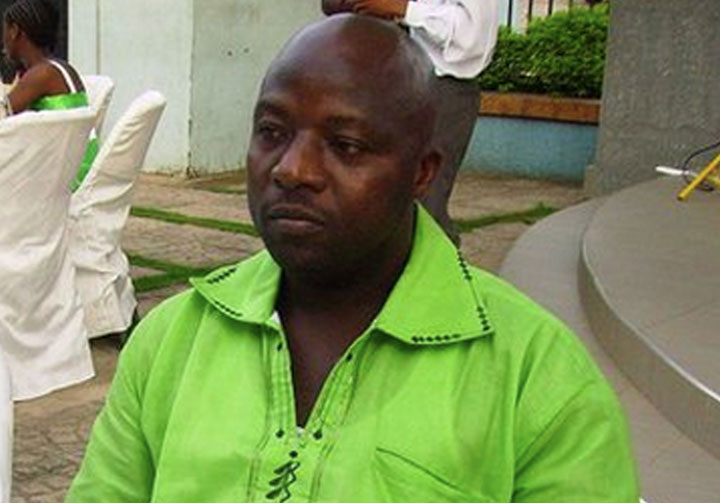PARIS – Thomas Eric Duncan had a headache and stomach pain. He was nauseous and dizzy. The Liberian native was the first Ebola patient on U.S. soil.

Even after conceding that he travelled from Liberia days earlier, a Dallas emergency room doctor sent him home. But in a first-ever media interview, Dr. Joseph Howard Meier explains why he made that call.
“It’s very easy to make a diagnosis of any condition after the patient’s medical evaluation confirms the final diagnosis…unfortunately, such 20/20 hindsight is not available to medical professionals caring for patients in real time,” Meier told the Dallas Morning News in an exclusive interview.
“Based on the information I had at the time, I believe that the care and treatment were appropriate,” Meier wrote.
READ MORE: How does Ebola spread? 5 things you need to know
Throughout the weeks of Centers for Disease Control and Prevention media briefings, government scrutiny and hospital updates, Meier was silent.
He was bombarded with media requests in the fallout of Duncan’s deteriorating health. While he declined to comment initially, Meier answered the questions through written responses with the help of a prominent lawyer, the Dallas newspaper said.
Duncan made international headlines in the fall after he arrived in the U.S. from Monrovia on Sept. 20. Five days into his trip, he was in hospital but doctors sent him home with Tylenol and a prescription for antibiotics.
Duncan returned to the ER two days later, this time in worse shape. Ultimately, on Oct. 8, he died of Ebola. Two nurses who looked after him contracted the disease while hundreds more people were monitored for symptoms during a potential 21-day incubation period.
- Capital gains changes are ‘really fair,’ Freeland says, as doctors cry foul
- ‘Dangerous message’: Experts slam anti-sunscreen claims circulating online
- As fake Botox cases prompt alert in U.S., Canada says no new issues reported
- ‘Trying not to die’: Tourism operators loaded with debt despite rising demand
By the end of October, nearly 1,400 pages of medical documents were revealed to Duncan’s family, who released the gruesome details about their loved one’s final days to the media.
In the wake of Duncan’s death, health officials clamped down on hospital protocol and training and questioned how the Texas site overlooked the single case that spread to others.
READ MORE: Questions and answers about the U.S. Ebola case
While in Monrovia, Duncan helped to care for a pregnant woman who later died of Ebola, according to his neighbours. On a medical form, he answered ‘no’ when asked whether he had cared for an Ebola patient or touched the body of someone who had died in an area affected by Ebola.
It’s unclear if Duncan knew of the woman’s diagnosis, though. Reports suggest he thought her ailment was pregnancy-related.
In responses to the Dallas newspaper, Meier recalls the day Duncan turned up in hospital. Meier was, unknowingly, the first physician to encounter a case of Ebola in North America. He suggests it’s “a little bit like getting struck by lightning.”
READ MORE: Ebola survivors must abstain from sex for 3 months, WHO warns
The triage nurse who took in Duncan recorded a “low-grade fever,” abdominal pain, nausea, headaches and dizziness. On a scale of 10, he said his pain was at an 8.
He told a nurse he’d recently travelled to Africa, but the nurse said she “attached no further significance” to the comment and didn’t ask to clarify where specifically in the continent.
CDC travel advisories were scattered throughout the hospital, but the health records suggest that mandatory training on Ebola preparedness wasn’t in place. Health care officials warned of an important question: have you travelled to West Africa? The nurse didn’t flag this travel detail to Meier.
READ MORE: Why health officials say the Ebola epidemic won’t spread into Canada
“Nurses typically bring doctors important or medically significant information verbally,” Meier told the newspaper.
But, he added, “It’s rare that travel history is medically significant.”
By the time Duncan was in Meier’s hands, his notes call the patient a “local resident.”
“If he told me he came from Liberia, this would have promoted me to contact the CDC and begin an evaluation for Ebola but the likelihood would still have been low since Mr. Duncan denied any sick contacts,” Meier explained.
READ MORE: 5 things we learned about Ebola from the U.S., Spanish cases
In the meantime, Meier ordered tests and hooked Duncan up to an IV and a dose of extra-strength Tylenol. He had a CT scan that came back without any concerning results.
With a prescription in hand, Duncan was discharged from hospital only to return two days later.
“As medical professionals we aspire to perfection in the diagnosis and treatment of all our patients and have regrets when an incorrect diagnosis occurs,” Meier wrote to the newspaper.
carmen.chai@globalnews.ca
Follow @Carmen_Chai




Comments